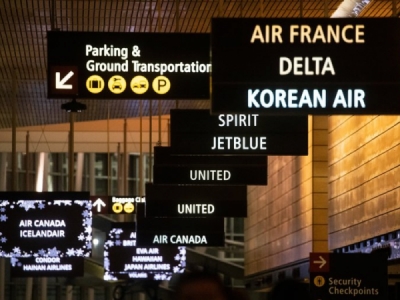
Posted on April 27, 2020
Seattle Times business reporter
The Port of Seattle will meet its goal of halving some of its climate-changing greenhouse gas emissions a decade ahead of schedule.
The progress comes from an innovative contract to heat the Seattle-Tacoma International Airport and power its bus fleet with renewable natural gas — not a reduction in emissions from planes or ground transportation at the airport that constitute the bulk of the Port’s climate footprint.
While the new contract is a step in the right direction, the focus of the Port’s clean energy efforts should be on cutting those emissions from planes and cars, climate activists say.
The Port of Seattle Commission last week authorized the new contract to supply renewable natural gas, also called biomethane, to help heat Sea-Tac and power its bus fleet. The 10-year, $23 million contract, with Wisconsin-based U.S. Gain, is funded by raising fees like landing charges on airlines by less than 1%.
Nearly 75% of the Port’s direct greenhouse gas emissions come from burning natural gas. Substituting biomethane results in an annual reduction of roughly 11,000 tons of emissions, equivalent to taking 2,400 passenger vehicles off the road, according to the Port.
The commission had originally targeted a 2030 deadline to reduce greenhouse gas emissions by 50%, from 2005 levels, in facilities it manages. Transitioning to biomethane means it will meet that deadline 10 years early.
Even apart from the immediate greenhouse gas impact, the Port’s new contract is a major development, said Washington State University bioenergy and alternative fuels specialist Jim Jensen.
Unlike natural gas, a fossil fuel typically mined in much the same way as oil, biomethane is a byproduct of the breakdown of organic waste in landfills and sewage plants, or is captured from manure on industrial farms.
Instead of allowing those potent greenhouse gases to escape into the atmosphere, biomethane producers capture and process them for use as heating fuel or in diesel engines.
Biomethane isn’t cheap, coming in at three to four times the cost of natural gas. Most biomethane consumption is in the transportation sector, Jensen said, incentivized by federal and state credits for the production of renewable fuel. And while there’s plenty of local supply of biomethane, most of it is funneled to markets in California and Oregon.
The Port’s action supports further investment in the renewable natural gas sector, Jensen said. And creating a local market for renewable natural gas for heating, he said, is “new territory.”
The biomethane purchased by the Port will be piped into the state from a landfill in Tennessee. Critically, the renewable natural gas comes from a new source not already on the pipeline supply chain, said Stephanie Meyn, the Port’s climate program manager.
“This item will be a really big step forward in our commitment to be the greenest, most energy-efficient port in North America,” said airport director Lance Lyttle in a recent commission meeting.
Climate activists take issue with that characterization.
“How can the Port say it’s the most energy efficient in North America when it’s simultaneously expanding emissions from cruise and aircraft travel?” said Stacy Oaks, an activist with environmental nonprofit 350 Seattle. The new biomethane contract is a step in the right direction, she said — “at least we’re using these gases twice. But do we want that to be something that we call renewable, that we have so much garbage?”
The new contract doesn’t affect greenhouse gas emissions from airplanes or ground transportation at Sea-Tac, the vast majority of Port-related emissions.
Those two sources accounted for roughly 681,000 tons of greenhouse gas emissions in 2018 within Sea-Tac’s airshed, according to Meyn. Plane and passenger traffic through Sea-Tac have only increased since then, until the recent introduction of travel restrictions to control the spread of the coronavirus.
Still, the Port has a goal of halving those emissions from 2007 levels by 2030. The target could be easier to meet if the state adopts a low-carbon fuel standard touted by Gov. Jay Inslee that he says could increase access to biofuels for the aviation industry by putting a price on the production and import of more carbon-intensive fuels.
For the second year in a row, the legislation to enact such a standard died last month in the state Senate Transportation Committee, to the disappointment of sustainability advocates at the Port.
“Some form of price on carbon at the state or federal level is a necessary but not sufficient condition to reduce the difference between fossil jet fuel and sustainable fuel,” said Commissioner Ryan Calkins, the co-chair of the Port’s Energy and Sustainability Committee.
Katherine Khashimova Long: 206-464-3229 or kalong@seattletimes.com; on Twitter: @_katya_long.
Source: seattletimes





